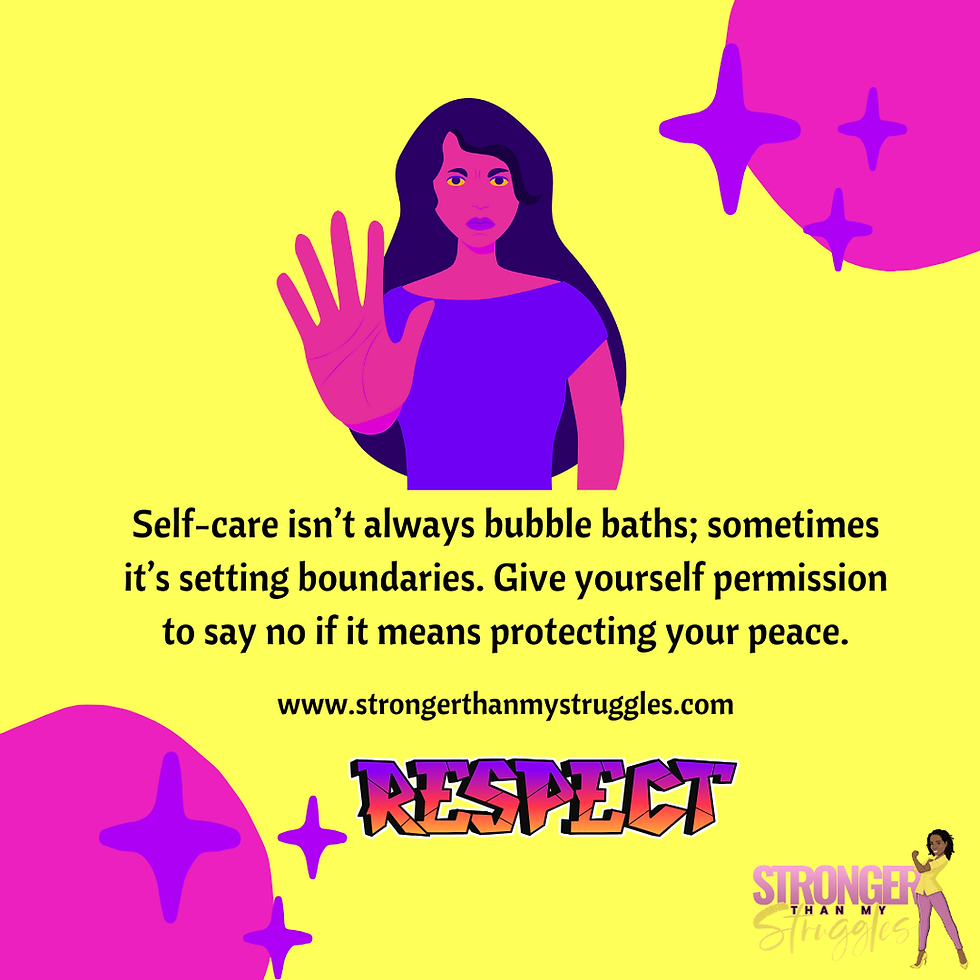Moving Beyond People Pleasing
- Melony Hill
- Nov 18, 2024
- 4 min read

Anyone else a recovering people pleaser? I was in deep, I even bought friends, well, rented them. I spent years of My life trying to just get along, keep people from leaving and making others happy with Me. Growing up in a home where I wasn't allowed to have boundaries and constantly begging for affection from My parents, left Me with an attention seeking personality that made Me want to hold on to people any way I could.
I have learned My lessons from that. These days I have boundaries and am quick to set new ones when needed; No rolls off My tongue easily too.
What IS People Pleasing and How Does it Negatively Affect Your Life?
People pleasing is a common behavior driven by the desire to gain approval and avoid conflict, but it can often lead to a loss of personal freedom and fulfillment. While trying to make others happy might seem noble, it frequently comes at the expense of our own needs and goals.
People pleasing behaviors often come from childhood trauma. For many, the desire to please others began as a survival mechanism in childhood, especially if they were raised in environments where approval from caregivers was conditional. These early patterns can set the stage for lifelong habits of prioritizing others’ needs over one’s own.
Occasionally, societal norms also reinforce people-pleasing tendencies, particularly for individuals socialized to prioritize harmony or caregiving roles. For example, messages like “just get along” or “don’t rock the boat” are internalized, making it difficult for people to say no or express disagreement. Understanding these roots is essential to breaking free from the cycle and seeing that people-pleasing, while often rooted in a desire for love and approval, is not necessary to feel secure or valued in relationships.
Are You Exhibiting People Pleasing Behaviors?
People-pleasing becomes a real problem when it keeps you from being true to yourself or when you start living according to others’ expectations. Signs that people pleasing is limiting your ability to be YOU may include:
Difficulty Saying No: When saying no feels like a betrayal or failure, it often results in taking on too many obligations that don’t align with personal goals.
Fear of Conflict or Disagreement: Avoiding conflict to keep peace may mean stifling your voice, which can lead to resentment and self-silencing.
Feeling Responsible for Others’ Happiness: Taking on the role of caretaker in relationships often comes with an unspoken expectation that you’re responsible for others’ well-being, which is ultimately unsustainable.
Recognizing these behaviors as limitations to personal freedom is a significant first step. Acknowledging that people pleasing can drain energy, compromise authenticity, and even strain relationships helps underscore the importance of creating healthier boundaries. I recently went through a situation where I had to set strict boundaries with a loved one. It was not an easy process because they were used to Me getting along, not realizing I was choosing to get along. When I felt an unspoken boundary was crossed, I made the boundary known and clear. It didn't help the relationship, but it made Me feel better. I have boundaries.
How Can You Set Healthy Boundaries for Self-Respect and Balance?
Establishing boundaries is critical to moving beyond people pleasing and gaining your autonomy. Healthy boundaries are not barriers against others; rather, they’re guidelines for self-respect and balanced relationships. By setting boundaries, you’re communicating that your time, energy, and well-being are valuable.
Identify Your Limits: Reflect on the situations and people that leave you feeling exhausted or overextended. This will help you identify where boundaries need to be strengthened. Ask yourself questions like, “What am I willing to compromise on, and what is non-negotiable?”
Communicate Boundaries Clearly and Kindly: Assertive communication is key. For example, if you’re always the go-to person for help, try responding with, “I’d love to help, but I’m not available right now.” This shows respect for both your limits and the other person’s request.
Practice Saying No Without Guilt: This is one of the most challenging aspects of boundary-setting, as people-pleasers often feel guilty saying no. Start with small steps, saying no to minor requests to build confidence and gradually working up to more significant boundaries. Remember, saying no is an affirmation of self-worth, not a rejection of others.
Reassess and Adjust as Needed: Boundaries are not static; they may evolve as you grow and change. Regularly reassessing your boundaries helps ensure they remain in alignment with your current needs and priorities.
Breaking free from people pleasing allows you to build a sense of personal freedom. When you make your own well-being a priority, you can engage in relationships and responsibilities with genuine enthusiasm rather than hidden resentment. This shift toward self-empowerment is liberating, allowing for a life that feels fulfilling and balanced.





































Comments